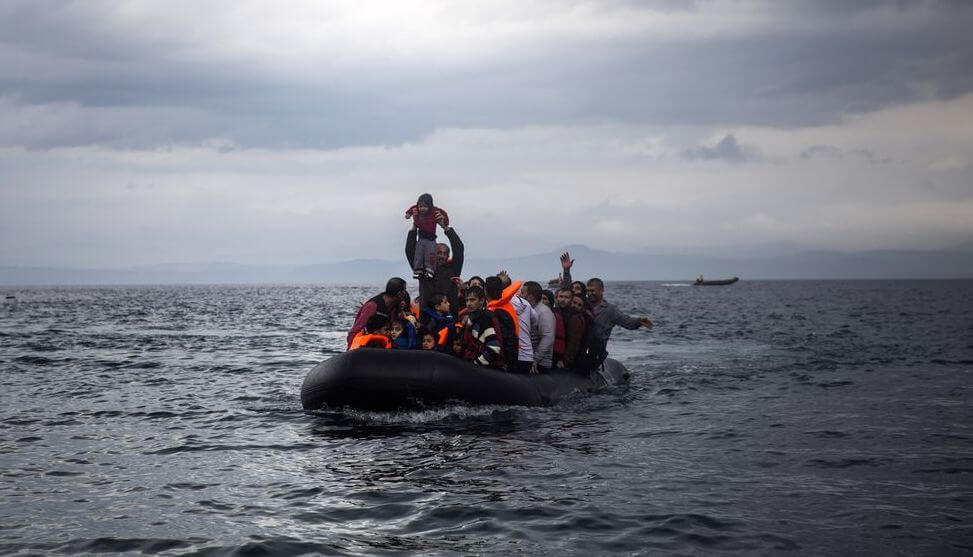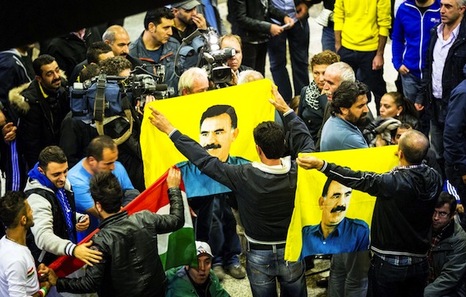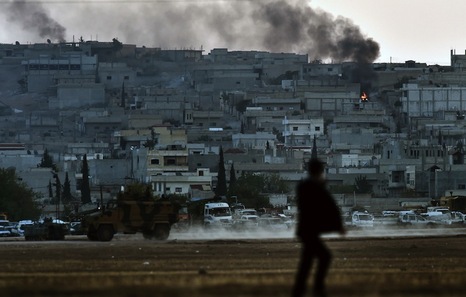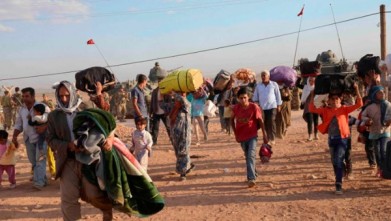Istanbul, Turkey. This week was as nerve-racking as it was exhilarating for all of those who are struggling for freedom and against state violence in Turkey. There is not one single day that we relax and breathe normally again. Every single day harbors a new crisis, a new call for unity in the face enormous state powers deployed to demoralize the protestors and muddle the positive messages that they are trying to give. But the bodies that are gathered at Taksim in Istanbul, at Kizilay and Kugulu Park in Ankara, in Gundogdu in Izmir, and in several other cities in Turkey rub their sleepless eyes each morning, check out the latest developments from Twitter or Facebook, and are out on the streets again. Even they themselves are surprised that their bodies can still walk, run, and carry vital supplies to friends who stayed overnight in the makeshift campsites in public squares. These bodies forget that they slept only 3-4 hours when they start forming barricades of flesh upon the sight of police activity. They forget the threats issued by governors, by the prime minister and his entourage, by the sold-out media and power-worshiping public figures in the country, when they realize that they are not alone, that thousands of other bodies are slowly but surely filling in the squares in solidarity. These bodies are organized by nobody, they do not follow orders, they just come to Taksim, Kizilay or Gundogdu day after day, guided by nothing but their own conscience and armed with nothing but their own willpower. This realization the fact that is proved every day and every night that no single body is alone, that we are nobody but everybody, keeps the fatigue from winning over. Nerves are restored, energies are recuperated; we start singing again, and cleaning again, and reconstructing the barricades, repainting the walls, erecting the fallen tents, cooking food in collective kitchens, and healing those who are wounded.
Four lives have been taken during this incomprehensible war waged by the state against its own people. Hundreds of bodies have ailments that range from lost eyes to fractured bones, gas poisoning, and respiratory difficulties. The birds, cats and stray dogs at the park have either died in considerable numbers or are being treated by camp inhabitants because of the effects of the tons of tear gas sprayed there every day.
As if all this isnt happening, the AKP government has turned into a Banana Republic regime, pouring out absurdities each and every day. In the morning the governor of Istanbul declares that the protestors at Gezi Park shall not be gassed, in the afternoon he gives them 1 hour to leave the park, in the evening he pulls the police back, at night he sends them out to attack. Prime Minister Recep Tayyip Erdogan performs daily stand-up comedies designating a handful of show biz figures who havent even been to Gezi Park to come and open a dialogue with him at his office in Ankara. These figures are so comical that the credibility of the so-called dialogue is below zero.
Disinformation abounds. First, Erdogan tries to discredit the protestors by dividing them into peaceful tree-lovers (the good ones) and the marginal, illegal organizations (the bad ones). Then, when it becomes absolutely clear that the bodies gathering day after day at the squares include moms, dads, uncles, aunts, grandmas and even physically disabled citizens in wheelchairs, he invents proofs that all this is part of an international complot against his government by foreign powers who are jealous of Turkeys economic successes. When no such proofs can be found, he then tries to arouse religious rage by claiming that the protestors drank beer and had sex in a mosque that was turned into an emergency infirmary during protests last week in Istanbuls Dolmabahce district. When the imam of the mosque is brave enough to declare to newspapers that no such thing happened, the government removes him from his position to silence and punish him. As part of a carrot and stick policy, a minister proposes to hold a referendum to determine Gezis fate. Erdogan immediately takes advantage of this idea to show how democratic he is. Tweets begin circulating to pull down masks and show how myopic the whole establishment is: there is a court decision against the destruction of the park and Erdogans government is trying to short-circuit law by using referendum as a tactic. A state that doesnt respect the law in the country can only be called democratic at the expense of hallowing out the meaning of democracy. Protestors remind the government straightaway that Mussolini also used plebiscites to legitimate his fascist regime. Having nothing else to invent, Erdogan then starts defaming the protestors at Gezi Park, saying that the whole place stinks of piss, and that we are all dirty and loathsome!
Metropolitan city governors are also part of this Bollywood scenario. The Istanbul governor asked parents to come and pick up their children from Gezi Park, warning that if they didnt, the children would be facing a risk. The risk in question was that theyd be sprayed with water and gas or shot with plastic bullets by the police, an institution intended to protect them for risks, theoretically speaking! The Ankara governor was cheeky enough (I want to write monstrous enough, but this would be taking him too seriously!) to hang up a banner thanking the police at the Guven Park where Ethem Sarisuluk was shot in the head with a plastic bullet last week. Ethem passed away yesterday, the day the governor had the brilliant idea to put up the banner.
Meanwhile, television channels that are brave enough to cover the events live are delivered enormous fines and even threatened with closure by the governments media censorship machine, the Radio and Television Supreme Board. But as soon as this happens, tweets in support of the channels hit the top list, and the resistance organizes boycotts of mainstream media. At least one channel, the leftist Hayat TV was saved this week thanks to thousands of tweets circulating in virtual space.
All this is happening in wild spontaneity: nothing can be planned hours ahead of the time, let alone days. Each move the Banana Government of Turkey does is countered by ingenious tactics from the protestors. On Wednesday evening a piano is brought to the Taksim square, and crowds gather around it to listen to songs of resistance, peace and solidarity. On Thursday evening, mothers responded to the Istanbul governor by coming to the Gezi Park, not to pick up their children, but to join them in their protest. They formed a human chain around the park, singing and dancing hand in hand. This was so important in a society where family ties are still very strong. Hundreds of tweets circulated saying it was Mothers Day at Gezi. The miraculous sense of humor that keeps spirits high reflected in the tweets: Since the mothers arrived, kids walking barefoot in the park have decreased by 70%, Thanks to mom, I dont drink cold water when Im sweaty from fighting the police anymore!
The most astonishing part of the spirit of resistance is that police violence still has the opposite effect: instead of intimidating the bodies residing in or circulating to and from the public squares in several cities in Turkey, it keeps increasing their number. On Tuesday, Taksim square was taken over by the police. For 10 days it was a police-free, traffic-free, prohibition-free space, appropriated by Istanbul residents. It reflected the colors of this country, the vitality and diversity that exists here. Groups from all ideologies had put up banners and posters anywhere they could. There wasnt a single wall or space that didnt carry the marks of the bodies flowing in and out of Taksim. Atatürk posters stood side-by-side with posters of radical leftist revolutionaries of the 1970s; graffiti of all sorts covered all the walls. The construction vehicles and bulldozers left over from the construction project at Taksim became spaces on which the bodies expressed their anger or their dreams of hope. One bulldozer was even painted pink to cheer it up!
But the police shot gas canisters at 8 p.m. on Tuesday, targeting tens of thousands of people gathered at Taksim in a festive mode. At first no one understood what was happening. We thought that the protestors were so happy they were igniting fireworks. No, this ball of smoke coming from the sky right on top of bare heads, heads not covered with strong casks, was not good-intentioned. The police were actually firing in the middle of the square, such that the bodies there had no place to shelter. Running, scurrying, panic When enough space was cleared in the square, squadrons of police marched like soldiers to take over Taksim. There was so much tear gas poured that Taksim was still stinking of pepper the next morning. None of the color was left, all of the banners were taken down, most of the barricades cleared, and several stands at Gezi Park burnt down.
Wednesday was perhaps the saddest day in the short history of the Gezi protests. Some tweets were even saying that Gezi was lost and that we should start resisting elsewhere. As the hours went by, the bodies that were forced out of the Taksim Square started slowly coming back. The whole place was beginning to defy the physical and symbolic death that the state was trying to inflict on it. Life took over. Lifes forces turned up in the form of bodies carrying supplies, mending tents, coming to see whether what was guiding them back into the square was also valid for other bodies. And yes, there were other bodies there in growing numbers. The nobodies were again uniting into everybodies. The whistles were blowing again, the slogans were being chanted, the conversations picked up from where they were abandoned the day before. By nightfall, the peaceful tone of a piano emerged from the Gezi entrance, signaling that life had won.
I am writing from Taksim where I also live, but our tweet world projects all of us into other spaces around Istanbul and around Turkey that are less visible than the Gezi Park. As we sing for Taksim, we cry for Ankara, where the police repression is more severe and more continuous. As Ankara cries, so does Izmir, Adana, Antalya, Kayseri. Then we all rejoice when we hear that residents in one of Istanbuls most ill-treated neighborhoods in the suburbs have gathered in thousands to block the highway.
This struggle is about endurance, it is a great challenge. But we have realized one thing: we, the people, have more endurance that any state apparatus because we are many, we are nobody but everybody. We are nowhere and everywhere. No state is capable of controlling us all at the same time.



